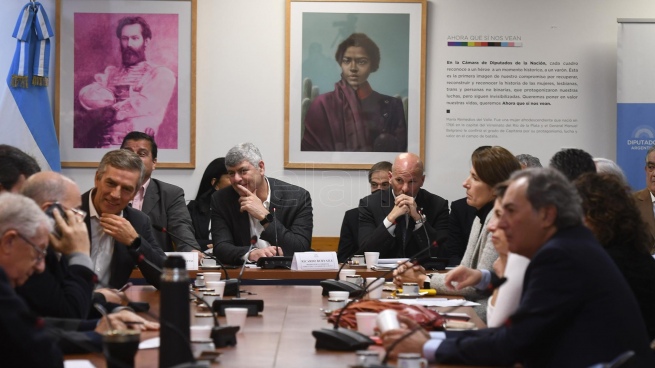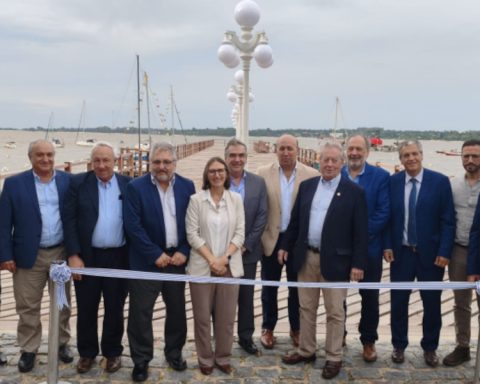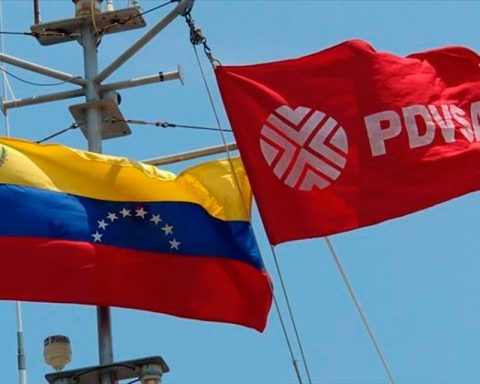The Chamber of Deputies analyzed this Wednesday in a plenary session of commissions the draft Law for the Promotion of Agroindustrial Development promoted by the Executive Power, which seeks to generate foreign currency and new jobs in agricultural and agroindustrial production of the 24 value chains of the country.
The plenary session was headed by the chairman of the Industry committee, deputy Marcelo Casaretto (Frente de Todos), together with the head of the Agriculture committee, Ricardo Buryaile (Together for Change), which was attended by the secretary of Agriculture, Matías Lestani, and representatives of the sector, as well as the leaders of the Liaison Table.
The project of the Executive Power aims to achieve greater industrialization in agricultural activity to export with greater added value, through the incorporation of investments and greater technology (seeds, fertilizers, genetics, among others).
The Law for the Promotion of Agroindustrial Development proposes adding value to products to create jobs and promote investments
For this purpose, the initiative – whose drafting was worked on through nine technical roundtables held between the Ministry of Economy and the Argentine Agroindustrial Council (CAA) – also proposes granting a computable fiscal credit bonus for the Income Tax for the incremental purchases in fertilizers, seeds, bio-inputs, and genetics and animal health
The plenary session was attended by the president of the Cereal Exchange, José Martins; the executive director of the Argentine Seed Growers Association, Alfredo Paseyro; the president of Argentrigo, Miguel Cané; the executive director of Syngenta, Antonio Aracre; and the owners of the Argentine Rural Society (SRA), Nicolás Pino; of the Argentine Rural Confederations (CRA), Jorge Chemes, and of the Agricultural Intercooperative Confederation (Coninagro), Carlos Iannizzotto and Elbio Laucirica

Opening the guest list, Martins stressed that the project seeks to see how it is possible to “grow in exports by adding value” and argued that this “has a strong implication in the generation of foreign exchange to help stabilize the macroeconomy and must be given in inside”.
Chemes, from CRA, clarified that this entity participated in the drafting of the project, although he questioned that “a reduction in the tax burden and the elimination of export duties” had not been included in the text of the initiative.
At this point, he said that it is about “creating jobs” but stressed that, for that, an “industrialization” process must be advanced, the focus of the project promoted by the national government.
“We encourage the deputies to enrich it and make it more viable,” emphasized the president of the Cereal Exchange.
For his part, Paseyro -of the Argentine Seed Producers Association- proposed modifying the text so that the amortization is in the first year, considering that “the inflationary context makes it necessary to speed up that amortization so that the best possible law comes out”, and said that “We have high expectations for this to move forward.”

Meanwhile, Cane, from Argentrigo, stressed that the initiative seeks to “mitigate the sector’s problems”, and said that “this incentive for fertilizers greatly helps the crop itself.”
In his turn, Ianizzotto -from Coninagro- assured that Argentina “comes out with this type of agreement” and highlighted that “this initiative is a source of hope because there is encouragement to production, encouragement to employment and promotion of federalism.”
Antonio Aracre (Syngenta) highlighted the importance of “taking care of the sector and the foreign currency it brings in”, and argued that technology is the most critical item, while asking: “I hope that the technological part can be discussed in addition to innovation and development and employment
In addition, he stressed that the initiative “encourages associativism in services” and added: “with this project we are providing a launch pad to establish State policies so that there is a predictable rule in the country.”
In fact, he understood that it is “a virtuous project for production” and proposed that the term continue to be 10 years “to have a feature of predictability”, and requested “reductions for export duties”.
Chemes, from CRA, also clarified that this entity participated in drafting the project, although he questioned the fact that “a reduction in the tax burden and the elimination of export duties” had not been included in the text of the initiative, two points on the which demanded their incorporation.
Nicolás Pino (of the Rural Society) clarified that this entity “did not participate in any of its instances in the preparation of the text” and considered that the initiative “does not contemplate the true structural reforms that cause the drop in investment and that makes the economy does not grow, such as high tax pressure and export duties”
“That should not be taken as criticism but I want to show that we are requesting an act of equality: if we want to work throughout the chain, we must provide equal situations for all the links. It is an important project but it must consider reductions in export rights from the start,” he said.
In his turn, the Secretary of Agriculture, Matías Lestani, affirmed that “this is an example of State policy” and maintained that the initiative comes precisely to give it in the field of agribusiness, which constitutes “precisely the most thriving sector of the economy”.
“There is no doubt that this is a very important first step. It is a pact with the future and it is a need for all Argentines to take a won battle into our pockets and show that we can work together,” the CRA representative postulated.
Also from Conninagro, Laucirica said that, beyond export duties (DEX), “we owe ourselves a discussion of a comprehensive tax reform where regressive taxes such as export duties are taken into account.”
We are asking for everything from a law and that is not going to allow us to crystallize the consensus as high as possible. I think we have an obligation to be optimistic. We want an Argentina where the 47 million Argentines can live better”, statedGermán Martínez-Head of the FDT block
Meanwhile, Antonio Aracre (Syngenta) highlighted the importance of “taking care of the sector and the foreign currency it brings in,” and argued that technology is the most critical item, while asking: “I hope that the technological part can be discussed in addition for innovation and development and employment”.
For his part, Pino (from the Rural Society) clarified that this entity “did not participate in any of its instances in the preparation of the text” and considered that the initiative “does not contemplate the true structural reforms that cause the drop in investment and that makes the economy not grow, such as high tax pressure and export duties,” about which, he said, that “today they are not legal.”
At the end of the presentations, the head of the block of deputies of the Frente de Todos, Germán Martínez, urged “to be able to generate a strategic view”, while emphasizing: “Let’s not ask a single law for everything because we don’t we will never reach consensus. We are asking for everything from a law and that is not going to allow us to crystallize consensus as high as possible. I think we have the obligation to be optimistic. We want an Argentina where the 47 million Argentines can live better,” he said.


















